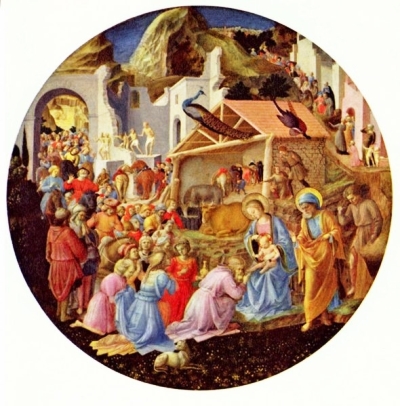![]()
The Words of the Kaufmann Family
|
|
The Words of the Kaufmann Family |

The secret to what makes things go well is intuited better by Jews than by Christians. Tragically Christianity, in its earliest phases, broke away from Judaism causing Christianity to spin off not anchored to its own historical and spiritual roots, nor to the cultural wisdom and mindset of the very person Christians follow.
In order to make things fit (especially the tragic, untimely execution of Jesus) Christianity veered toward other-worldliness, and paradoxically wove into its narrative anti-Jewish impulses.
These two shortcomings in this magnificent and helpful world religion is sad in dozens of ways (the tragic history of Christian persecution of Jews being a big one), but three main problems are especially important to note.
By way of disclosure, this is not an anti-Christian article. This writer thinks the world of Christianity, and considers our current instability and precarious possibility of decline of US, Europe, and the West, to be the result of the declining influence and presence of Christianity in day to day life. The decline of sufficient and genuine integration of Christianity in daily life and in the lives of leaders, evolved due to Christianity's inability to retain viable relevance in the world when challenged by the great materialist movements of the 19th Century (Darwin, Freud, and Marx). But just because a thought system or a community loses or fails to attain relevance or influence it does not mean that its tenets are not true. I know plenty of truths that have virtually no influence, and that are ignored by massive numbers of people.
Th three core tragedies associated with Christianity's early break from Judaism are:
1. Christianity's resultant other-worldliness,
2. Christianity's difficulty to access the person they follow and worship, and get a clearer sense and understanding of what this particular Israeli was trying to explain and demonstrate, and
3. The mismatch to have a religion with such influence in world affairs itself be so deeply other-worldly in its core worldview. It is a crying shame that Christianity lost its connection to its own roots, and the halakik wisdom for life in the world so urgently needed in our current time of instability.
This disconnect, and this "half-ness" was strongly evident in the Christmas sermons of two of the most powerful religious leaders in the world today, the Archbishop of Canterbury, Rowan Williams, head of the Church of England, and Pope Benedict XVI, head of the Roman Catholic Church.
Christmas is the most important calendar day for Christians. These sermons given on this day represent (a least should, and probably do) serious soul-searching, and preparation by these leaders to settle upon a message to the world designed to be as helpful and as momentous as possible.
Pope Benedict called for peace in the Holy Land, urging Israelis and Palestinians to improve their relations (a pleasant enough sentiment, no doubt). And just how does His Holiness advise Israeli's and Palestinians to go about this greater cooperation? Of course, by the light of Christmas. "May the light of Christmas shine forth anew in the Land where Jesus was born, and inspire Israelis and Palestinians to strive for a just and peaceful coexistence," he said. Additionally His Holiness used the occasion of Christmas to intensify his spat with China over who's in charge here.
Archbishop Rowan Williams had a different emphasis in his Christmas sermon. He focused largely on the global economic malaise created by the laws of universe snapping back at rampant greed. "There is a "lasting sense" that the most prosperous in society have yet to shoulder their load in the economic downturn," the Archbishop of Canterbury said yesterday. "That confidence isn't in huge supply at the moment, given the massive crises of trust that have shaken us all in the last couple of years and the lasting sense that the most prosperous have yet to shoulder their load."
Additionally Archbishop used the occasion of the forthcoming royal wedding between Prince William and Kate Middleton to state that the Christian bond of marriage is a symbol of hope for humanity.
Surely these messages are good enough. They're good enough for me; war is bad, people should get along, communities of faithful under duress need encouragement and fortitude, people better off should invest in the uplifting those of lesser means, and spiritually rooted family is vital. We are grateful for leaders such as Williams and Benedict willing to bear heavy burdens of responsibility.
The problem in the messages is the gaping lack of applied spiritual laws and principles that could serve to raise these messages above the sound of yawning platitudes. Why can't we hear something to work with from the greatest, most sophisticated forces of Christianity in the world today? Why can't we hear a more relevant and sophisticated vision and set of guidelines to light the way toward the peace and prosperity Williams and Benedict properly call for?
Tragically, the deep-rooted other-worldliness of Christianity dilutes these admonitions, rendering them into idle comments from passers-by, casual observations from folks who in their heart of hearts really do not believe in the substantial possibility of the peace and prosperity for which they call. The enduring breach between Judaism and Christianity cripples the voice of spiritual guidance needed in our time. Halaka ("the walk"), and the mission of Tikkun Olam (repairing the world) that arise from halakik obligations should radiate from Christmas sermons, giving these important calls the ring of clear and confident guidelines to leaders and citizens in a world that has lost its moorings and needs a clear way forward.